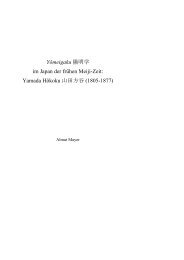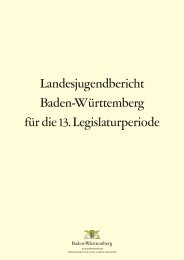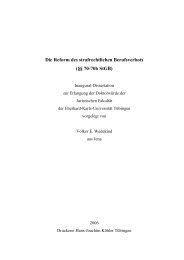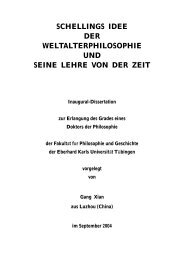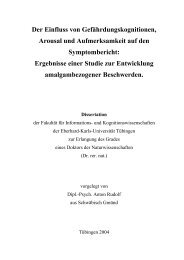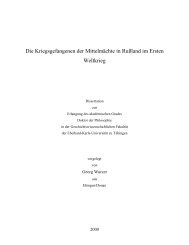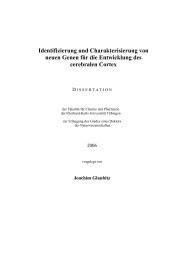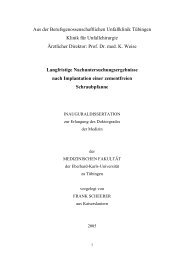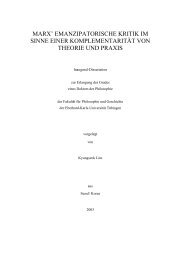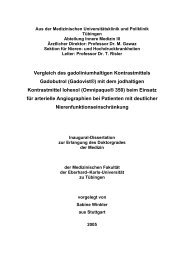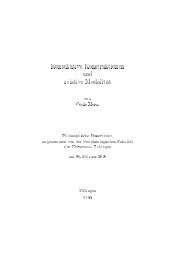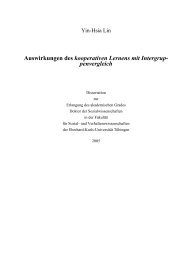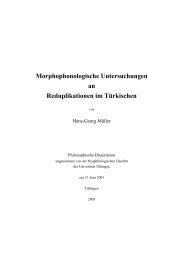Perception verb complements in Akatek, a Mayan language
Perception verb complements in Akatek, a Mayan language
Perception verb complements in Akatek, a Mayan language
You also want an ePaper? Increase the reach of your titles
YUMPU automatically turns print PDFs into web optimized ePapers that Google loves.
62 3. PERCEPTION VERB COMPLEMENTS IN ENGLISH<br />
c. John remembered his mother's beautiful s<strong>in</strong>g<strong>in</strong>g.<br />
d. John remembered Mary's hav<strong>in</strong>g bought eggs.<br />
e. ?John remembered her to be friends with everyone.<br />
f. John remembered that Mary bought eggs.<br />
Loose conta<strong>in</strong>ers tak<strong>in</strong>g subject <strong>complements</strong> are X surprise and X<br />
cause:<br />
(40) a. *Mary buy eggs surprised John/ caused a riot.<br />
b. The farmer slaughter<strong>in</strong>g a pig surprised John/ caused a<br />
riot.<br />
c. *It ra<strong>in</strong><strong>in</strong>g surprised John/ caused a riot.<br />
d. His mother's beautiful s<strong>in</strong>g<strong>in</strong>g surprised John/ caused a<br />
riot.<br />
e. Mary's hav<strong>in</strong>g bought eggs surprised John/ caused a riot.<br />
f. *Her to be friends with everyone surprised John/ caused a<br />
riot.<br />
g. That Mary bought eggs surprised John/ caused a riot.<br />
Obviously, neither naked <strong>in</strong> nitives nor to-<strong>in</strong> nitives are prone to occur<br />
with loose conta<strong>in</strong>ers like X surprise/ cause and remember X. 6 In<br />
addition, ACC-<strong>in</strong>g <strong>complements</strong> cannot ll the subject position of X<br />
surprise when the subject of the complement is an expletive it as <strong>in</strong><br />
(40-c).<br />
2.3. Others. There are matrix predicates <strong>in</strong> English that accept<br />
neither PNOMs nor INOMs. First, I consider the <strong>verb</strong> know, which<br />
was hypothesized above to dist<strong>in</strong>guish event denot<strong>in</strong>g from primarily<br />
proposition denot<strong>in</strong>g PVC types. Second, I take a look at certa<strong>in</strong><br />
causative<strong>verb</strong>s, which<strong>in</strong>many respects exhibit qualities similar to perception<br />
<strong>verb</strong>s (Gee, 1977; Higg<strong>in</strong>botham, 1983; Mittwoch, 1990;<br />
Guasti, 1993; Higg<strong>in</strong>botham, 1994b).<br />
Object <strong>complements</strong> of know like the that-clause and the to-<strong>in</strong> nitive<br />
<strong>in</strong> (41) are <strong>in</strong>terpreted as propositions. In fact, know can only take<br />
<strong>complements</strong> that are proposition denot<strong>in</strong>g. Hence, know cannot<br />
embed event denot<strong>in</strong>g complement types like naked <strong>in</strong> nitives and<br />
ACC-<strong>in</strong>g clauses (42). 7 Also, the two types of nom<strong>in</strong>alizations dealt<br />
6 Note that remember accepts to-<strong>in</strong> nitives <strong>in</strong> rais<strong>in</strong>g constructions:<br />
(i) John remembered to buy eggs.<br />
7 Except for a usage found ma<strong>in</strong>ly <strong>in</strong> British English, which is restricted to the<br />
perfective aspect form have known and optionally allows the <strong>in</strong>sertion of to (Quirk<br />
et al., 1985):



